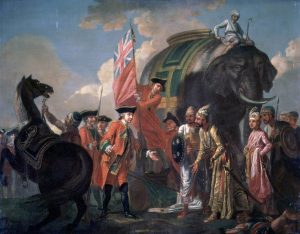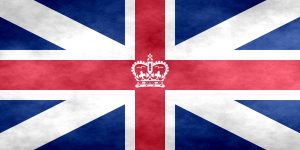Pax Britannica – The Zenith of the British Empire
In much of South America, particularly Argentina and Chile, British investment was heavy and her exports profitable. The extent of Britain’s imperial and extra-imperial interests was, therefore, enormous and its implications profound. For example, one such implication was the need to maintain the supremacy of the Royal Navy against all possible challenges. To this end the number of warships was kept at the “two-power standard”, that is, more than the combined strengths of the next two largest navies.
Towards the end of the nineteenth century the British Empire found itself diplomatically in ‘splendid isolation’. The term ‘splendid isolation’ was intended to suggest that the Empire was diplomatically isolated in a dangerous world. “Although the Pax Britannica still seemed secure and the British Empire was the leading world power, that position was increasingly subject to challenge. Yet throughout this uncertain era it is important to remember that ‘British’ power was not simply the United Kingdom power. In a very important sense Britain did indeed have allies, and some components of the Empire began to make useful contributions to her strength.”20 During the First World War more than 2.5 million troops from the Dominions and India were added to the 5 million from Britain. The United Kingdom’s Cabinet committee on defence co-ordination was called, significantly, the “Committee of Imperial Defence.” Moreover, in the age of sea power, the existence of a world-wide network of ports and bases and the superiority of Britian’s fleet from gunboats to battleships facilitated the Pax Britannica. It is thus ironical that British power proved, after all, insufficient to protect the British Empire.
Among the first eminent politicians aware of the challenges that Britain was facing, as we saw briefly earlier on, was Joseph Chamberlain. “To him the ideal solution was a closed empire economy – an imperial Zollverein. ‘We people of the Empire should treat each other better than we treat foreigner.’ “21 British manufacturers and Chamberlain were unhappy that a few colonies were thinking of a role of rivalry by establishing an industrial base of their own and mot simply buying more products from Britain. They were the third category of the nations in the Empire that we described i.e. the self governing communities of mostly British stock or, as they were later called, the dominions. For example, in 1913 they bought only 38% from Britain but were pleased to sell her 59% of their exports.
As a result, in the early years of the twentieth century, Chamberlain favoured tariff reform, abandoning free trade in favour of a system of imperial preference. But most politicians and the public still held sacredly to free trade, with its supposedly cheaper food the masses. But the experiences of the 1914-18 war, with closer imperial economic co-operation and the need for more government interference in the economy, helped start the erosion of the sanctity of free trade. This was heightened by the 1917-18 Royal Commission into natural resources urging that an imperial trade policy be worked out and by a 1918 House of Commons Select Committee advocating imperial preference. It finally tool the crises of the great world depression of the 1930s to cause a full abandonment of the nineteenth century, liberal, free trade approach.



